Diaspora Desk
See Nigerian Drummer Who Set the Beat for US Civil Rights

Almost 250,000 people attended the event where Martin Luther King Jr delivered his historic I Have a Dream speech during the March on Washington 57 years ago, including prominent figures such as James Baldwin, Harry Belafonte, and Sidney Poitier. Amongst them was a Nigerian drummer, Babatunde Olatunji.
At the event, Olatunji who was born in 1927 to a Yoruba family in Lagos state, was perhaps a slightly more unexpected figure among the guests who gathered to watch King Jr speak.
Ekohotblog understands that the occurred 3 years after the drummer won a scholarship to study at Morehouse College in Atlanta in 1950.
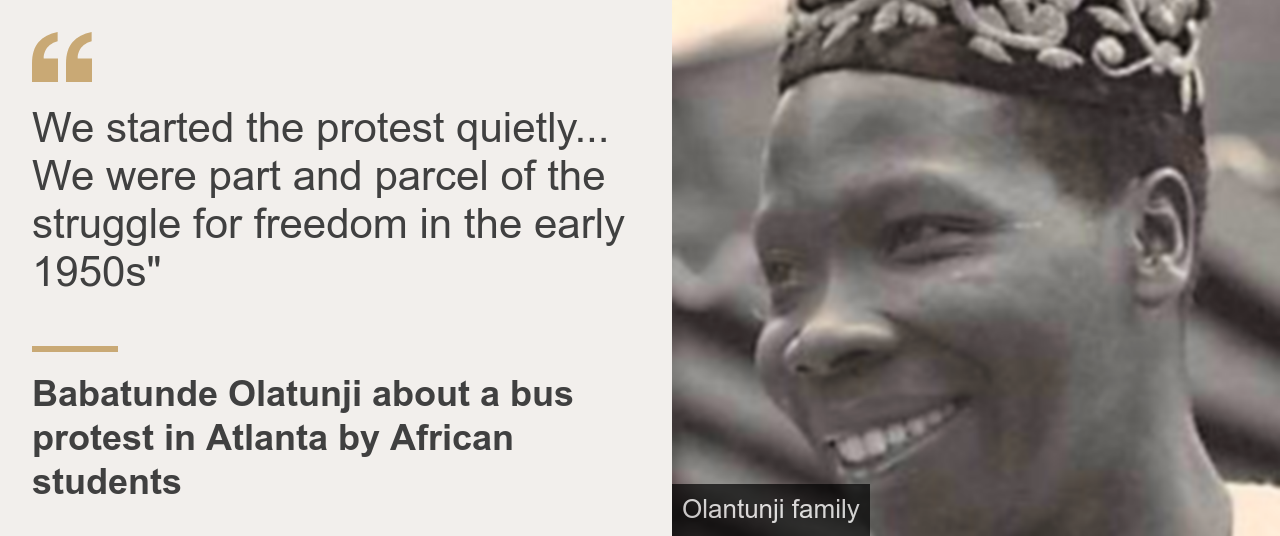
Overtime, he became a pioneering drummer who released 17 studio albums, including his 1959 debut “Drums of Passion,” widely credited with helping to introduce the West to “world music”.
Despite Olatunji’s enduring musical legacy, which includes a Grammy nomination and compositions for Broadway and Hollywood, his civil rights advocacy is less well known.
Nigerian-American activist Opal Tometi, co-founder of the Black Lives Matter movement said that the leaders in the 50s and 60s provided a great deal of inspiration for him.
Robert Atkinson, who collaborated with Olatunji on his autobiography The Beat of My Drum, which was published in 2005, two years after his death said, “He was committed to social activism throughout his life.
“He really deserves to be remembered more for his role as a political activist in the US civil rights movement – before it was even a movement,” He added.
Pride in African culture
As a Morehouse student, Olatunji encountered ignorance and stereotypes about Africa and strove to educate his fellow students about the continent’s music and cultural traditions.
He started playing African music at university social gatherings and gave drumming demonstrations at both black and white churches across Atlanta.
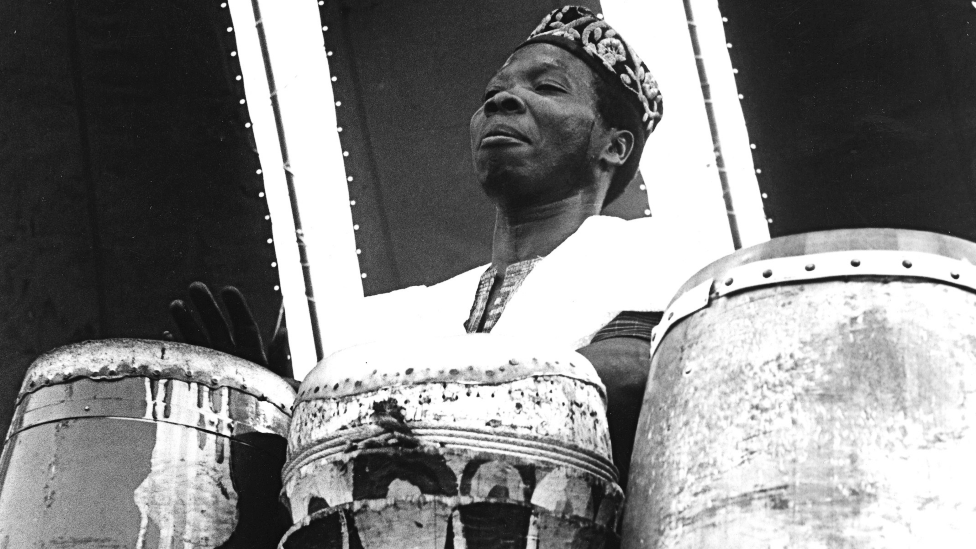
“Baba sparked a deep sense of pride among African Americans by strongly promoting images of African culture, which in a subtle but significant way, helped set in motion the currents of the early civil rights movement,” Atkinson says.
At a time of state-sanctioned racial segregation in the US, Olatunji quickly became acutely aware of racism, and began organising students to challenge so-called “Jim Crow” laws in the south.
In 1952, three years before Rosa Parks helped spark the Montgomery Bus Boycott in Alabama, Olatunji staged his own protests on public buses in the south.
On one occasion, he and a group of students boarded a racially segregated bus in Atlanta wearing traditional African clothes and were allowed to sit anywhere they wanted because they were not identified as African Americans, who had to sit at the back.
The next day, they boarded the same bus in their Western clothing and refused to sit in the back when ordered to do so by the bus driver. Olatunji and his friends continued to challenge segregation in this way despite the threat of prison.
“We started the protest quietly,” he later recalled of the incident. “We were part and parcel of the struggle for freedom in the early 1950s.”
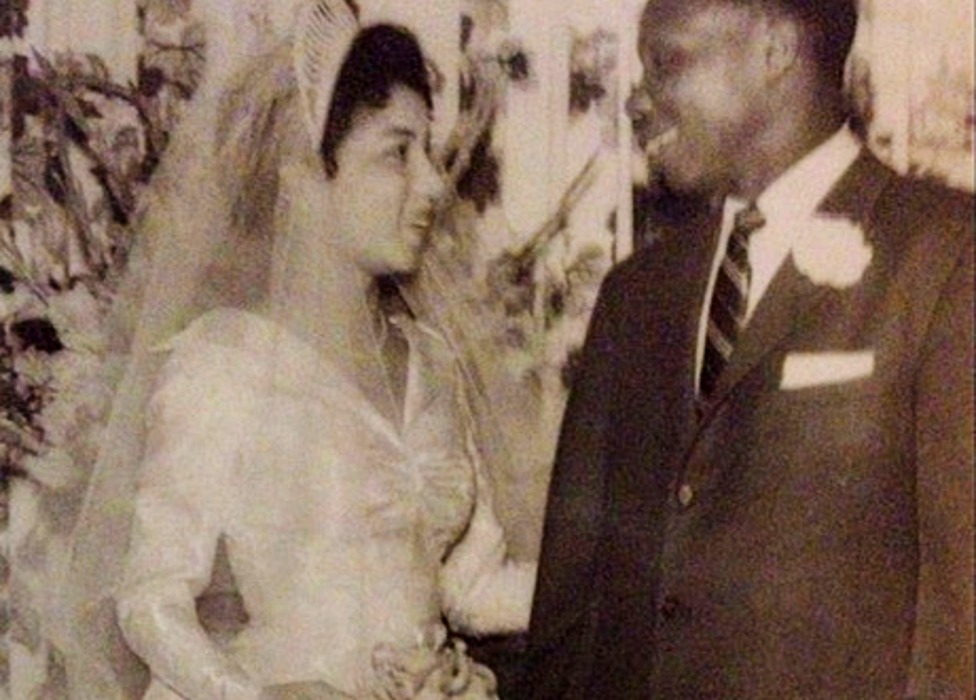
Meeting Martin Luther King and Malcolm X
Olatunji’s widow, 89-year-old Iyafin Ammiebelle Olatunji, told the BBC that he was called in to “ease the tensions in various communities”, such as during the aftermath in 1965 of deadly riots in the predominately black neighbourhood of Watts in Los Angeles.
“He saw himself as a pan-Africanist who always reached out to unify Africans and African Americans,” she said.
Just as he progressed with life, Olatunji became a president of the Morehouse student body, which led to him meeting many early civil rights leaders in the 1950s, including Martin Luther King Jr and Malcolm X.
His involvement in the US civil rights movement was strongly inspired by the wave of anti-colonial resistance movements sweeping across Africa during the 1950s and 1960s – of which he was a part.
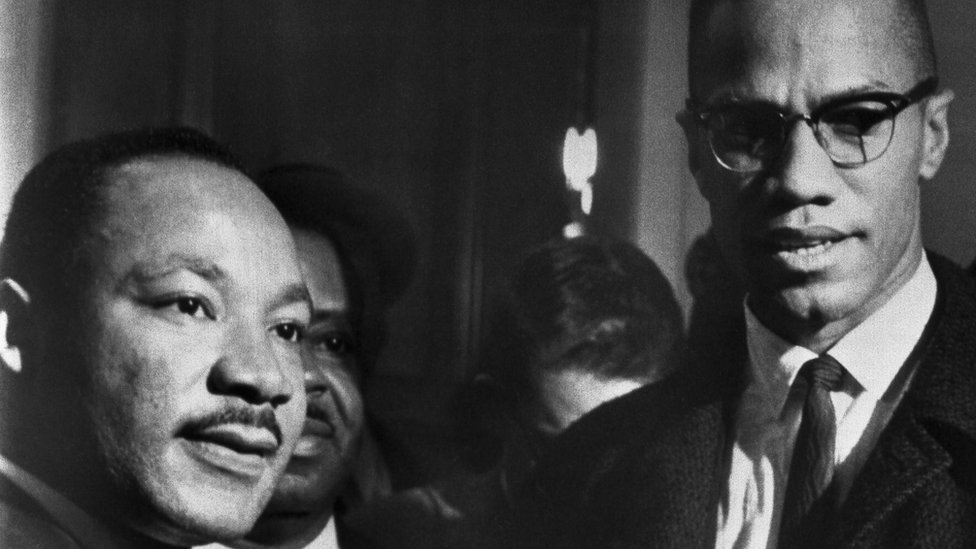
In 1958, he traveled to Accra to attend the All African People’s Conference organised by Ghana’s independence leader Kwame Nkrumah.
The conference brought together leading independence figures and delegates from 28 African countries and colonies to strategise their opposition to European colocalization. It was also attended by influential African Americans such as Claude Barnett, founder of the
Chicago-based Associated Negro Press, and Alphaeus Hunton, then secretary of the Council of
African Affairs.
Professor Louis Chude-Sokei, director of African-American studies at Boston University, says there was an intellectual and social exchange between Africans and African Americans, some of whom were inspired by newly independent African states such as Ghana and Nigeria.
“Given that shared context of race and racial struggle, by the time we get to the civil rights movement, it’s not strange that African Americans and Africans are interacting culturally around issues of freedom and liberation,” he told the BBC.
Colonisation and segregation
Following the invite of Martin Luther King Jr in 1957 Ghana’s first Independence Day celebrations and met Nkrumah, it was recorded that the meeting had a profound effect on King Jr, who drew inspiration from Ghana’s anti-colonial struggle.
“Ghana has something to say to us,” King said in his first sermon upon returning to the US from Ghana. “It says to us… that the oppressor never voluntarily gives freedom to the oppressed. You have to work for it”
In the 1962 American Negro Leadership Conference, King drew a more direct comparison between colonialism in Africa and American segregation, saying the two were “nearly synonymous… because their common end is economic exploitation, political domination, and the debasing of human personality”
Meanwhile, King’s counterpart Malcolm X embraced the anti-colonial uprising of the Mau Mau movement in Kenya, and believed that adopting some of its tactics could help eradicate the Ku Klux Klan in the US.
He also met several African leaders to discuss the African-American civil rights struggle and received support in particular from Tanzania’s founding President Julius Nyerere. In 1964, Nyerere helped Malcolm X convince African leaders to pass a resolution at the Organisation of
African Unity (OAU) summit urging the US to eliminate racial discrimination.
Malcolm X also interacted with Africans in the US, where he met Olatunji, who drummed at civil rights rallies at his request.
“He had a close relationship with both Martin Luther King and Malcom X,” Atkinson says.
“Baba was a bridge between the two approaches of the time: King’s was non-violent and Malcolm’s not so much sometimes.”
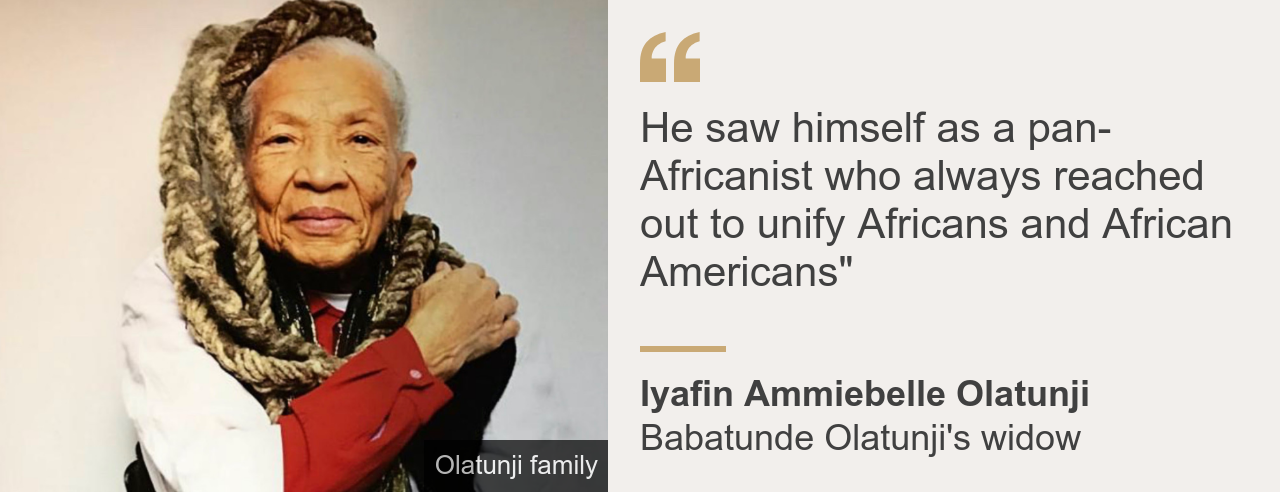
Intensity and Passion
As part of his several performances for the NAACP and King’s Southern Christian Leadership Conference, in 1960, Olatunji appeared on the civil rights jazz album “We Insist!” alongside playwright Oscar Brown Jr and Max Roach.
“The intensity of my father’s performances, during which he exuberated his passion for his art, his message and his fans always amazed me,” one of his four children, Folasade.
“He had an excellent work ethic which he instilled in his children and the people around him,” she said.
Modupe, Olatunji’s eldest daughter added that “His work ethic was still evident until the end of his life.”

His Death and Legacy
It was recorded that a day to Olatunji’s 76th birthday in 2003, he died. His legacy of music and activism continues to inspire successive generations, particularly contemporary Africans in America who draw on his example of bridging the continent with its diaspora.
“We have picked up the baton from a previous generation and we’re continuing to run the race that they started,” Ms Tometi of BLM stated.
“This is a perfect time for people to know about Baba. These demonstrations for justice are such a new and greater uprising of what he was part of 60 years ago,” Olatunji’s biographer added.
Source: BBC News
Advertise or Publish a Story on EkoHot Blog:
Kindly contact us at [email protected]. Breaking stories should be sent to the above email and substantiated with pictorial evidence.
Citizen journalists will receive a token as data incentive.
Call or Whatsapp: 0803 561 7233, 0703 414 5611






